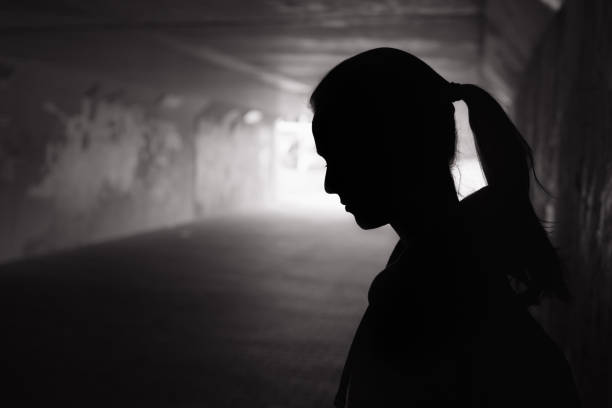There’s a quiet moment that happens to all of us. A sliver of time when the truth almost breaks through.
You’re standing at the bathroom sink, brushing your teeth, staring at your own eyes in the mirror. And for a second—a flash of something deeper—you feel it. That this life you’re living isn’t quite yours. That you’re pretending. That you’ve been telling yourself a story so long, it’s almost become believable.
And then, like a tide pulling back, it’s gone. You blink. You rinse. You smile at your reflection. You tell yourself you’re fine.
That’s how self-deception works—not as a loud proclamation, but as a whisper. A subtle shifting of the facts. A quiet denial of what you know deep down but refuse to admit.
We all lie to ourselves. Not because we’re cowards. Not because we’re bad people. But because sometimes, the truth feels too heavy to hold.
This is the real reason we lie to ourselves: to survive the weight of what’s real.
But what if that lie—so comforting, so familiar—is also the thing keeping us stuck?
The Anatomy of a Self-Lie
To lie to others is simple. But to lie to yourself? That’s a masterpiece of complexity.
It begins with avoidance—a subtle decision not to look too closely. You stay busy. Distracted. Always moving. You tell yourself it’s just not the right time to face certain truths. Later, you say. Tomorrow. When you’re stronger. When the moment is right.
But truth waits for no perfect timing. It festers in silence. It begins to haunt.
And so, you start adjusting the story. You say the relationship isn’t that toxic. The job isn’t that soul-crushing. The drink, the spending, the weight, the rage—it’s all under control. You convince yourself that it’s not really avoidance—it’s strategy. Not suppression—just positivity.
But deep down, you know.
And this is where the lie becomes dangerous. Because it no longer feels like a lie. It feels like identity. You’re not avoiding pain—you’re just not that kind of person. You’re not scared—you’re just logical. You’re not lonely—you’re just independent.
You sculpt a version of reality that fits what you can bear.
That’s what self-deception is: an emotional survival tactic dressed in reason.
When the Truth Threatens the Self
Why would anyone choose a lie over the truth?
Because the truth, when it collides with your identity, feels like annihilation.
If you admit the relationship is dead, what does that say about the years you spent trying to save it? If you admit you’re deeply unhappy, what does that say about the life you built—the marriage, the children, the career?
To accept the truth means to confront loss—not just of facts, but of who you thought you were.
And so, the lie isn’t just a lie. It’s a shield. A way to preserve the self. You aren’t just protecting your ego—you’re protecting your entire psychological foundation. Your memories. Your hope. Your narrative.
This is why some truths never get spoken. Because to speak them would require a kind of grief most of us aren’t ready for.
It’s not denial out of arrogance. It’s denial out of love—for a past you can’t bear to betray.
The Role of Childhood in Self-Deception
To understand why we lie to ourselves, we have to go back—to the beginning.
Childhood is where our emotional language is first written. And for many of us, that language was taught in contradiction.
If love meant being good and quiet, then you learned to suppress your wildness. If anger meant punishment, you learned to smile when you were hurt. If vulnerability meant abandonment, you learned to say, “I’m fine,” even when you were shattered.
These early survival mechanisms become templates. You carry them into adulthood not as memories, but as truths.
So you lie to yourself—not because you’re dishonest, but because the truth was never safe. You learned to hide it. To twist it. To bury it beneath behaviors that earned approval.
And the longer you live in those stories, the more real they become.
We don’t lie to ourselves because we’re broken. We lie because somewhere along the way, truth was too dangerous to hold.
How Culture Rewards the Lie
If self-deception begins in childhood, culture reinforces it.
We live in a world that rewards confidence over honesty. Image over authenticity. Productivity over presence. Admitting doubt, uncertainty, or fear? That’s weakness.
So we adapt.
We post smiling pictures during our darkest days. We stay in relationships for the optics. We chase careers not because they fulfill us, but because they validate us. We learn to perform happiness.
Social media makes this worse. Every scroll is a reminder of who you should be. Every curated feed another layer of distance between your truth and your projection.
The pressure is relentless. To appear successful. To appear stable. To appear unbothered.
But appearances are the favorite playground of self-deception.
And the more the world applauds your lie, the harder it becomes to leave it behind.
When the Lie Starts to Hurt
There comes a moment in every person’s life when the cost of the lie becomes unbearable.
Maybe it’s a quiet panic in the night. A sudden breakdown in the car. A fight you can’t stop replaying. A therapy session where your defenses finally shatter. A divorce. A diagnosis. A death.
And suddenly, the story you’ve told yourself starts to collapse.
This is the reckoning.
It doesn’t always look dramatic. Sometimes, it’s just a whisper. A weariness. A sense that you can’t keep doing this. That your soul is tired of pretending.
This is the moment when truth, even painful truth, begins to feel like relief.
Because the lie—though it once protected you—is now the thing keeping you in pain.
The Courage to Face the Mirror
Truth doesn’t arrive as a lightning bolt. It arrives as a question.
“Is this really who I am?”
“Is this actually working?”
“Do I even want this life?”
These questions are terrifying. But they’re also sacred. They are invitations to return to yourself—not the self you built to survive, but the self that waited patiently underneath.
Facing the truth requires grief. You have to mourn the years you lost. The people you hurt. The versions of yourself you betrayed. You have to feel it all.
But in that grief is liberation.
Because once the lie breaks, something else breaks too: the illusion of control. And in its place, something tender begins to grow. Curiosity. Self-compassion. Freedom.
You realize that truth doesn’t destroy you. It rebuilds you.
Not into someone better—but into someone real.
How We Begin to Tell the Truth
The path back to truth is not about confession. It’s about curiosity.
It starts in the small moments. When you admit to yourself, “I don’t like this.” When you notice your body tightening around a yes that should have been a no. When you pause before reacting and ask, “What am I really feeling?”
Telling the truth isn’t always dramatic. Sometimes it’s simply choosing rest over performance. Saying “I don’t know” instead of pretending you do. Admitting you need help. Ending the lie that you should be able to do this alone.
And sometimes, it’s telling someone else: “I’ve been lying to myself. And I don’t want to anymore.”
This is how the healing begins. Not in clarity, but in willingness.
A willingness to be wrong. To be lost. To not have it figured out.
Truth, at its core, is an act of surrender.
Living Without the Lie
What happens when you finally start living in truth?
You begin to feel—everything. Not just the good. The ache, too. The fear. The regret. But also a strange lightness. An openness. Like you’re breathing for the first time.
You become less certain, but more alive.
You no longer chase validation because you’re not trying to prove a false self. You speak softer because you’re not performing. You love deeper because you’re no longer guarding your heart behind a mask.
The people around you might not understand. Some will miss the version of you that fit neatly into their expectations. But the people who remain—who meet you in your rawness—those are your people. And their love will feel different. Realer. Like a mirror that doesn’t lie.
And most of all, your relationship with yourself changes. You trust yourself again. Because you know you’re telling the truth—even when it’s hard.
That’s what integrity is: not moral perfection, but inner alignment.
And it feels like peace.
The Lie Served You—Until It Didn’t
We must remember this: our lies began as protection.
They were never evil. They were never failure. They were strategies. Stories. Shields.
And they got us here.
So don’t hate the lie. Thank it. Then lay it down.
Because the truth is, you don’t need it anymore.
You are strong enough to bear what’s real. You are brave enough to face what hurts. You are wise enough to know the difference between safety and stagnation.
The real reason we lie to ourselves is because once, we didn’t know any other way to survive.
But now you do.






